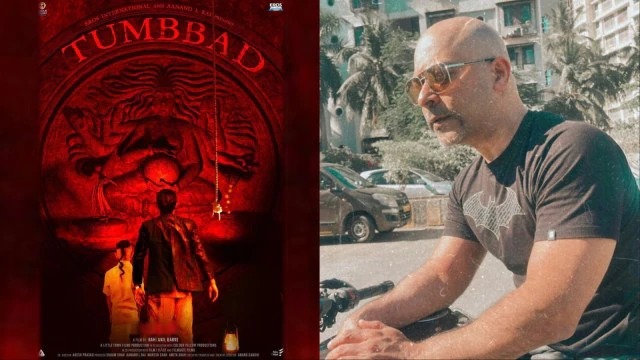In the Indian film industry, the journey to bring a concept to life can often be as captivating as the story itself. One such tale is that of “Tumbbad,” a cinematic gem that intertwines horror, mythology, and a deep exploration of human greed. Directed by Rahi Anil Barve and produced by the formidable Anurag Kashyap, the film took an astonishing 15 years to come to fruition. Central to its engaging narrative is renowned actor Nawazuddin Siddiqui, whose portrayal of the lead character leaves an indelible mark on the audience. In this article, we aim to delve into the arduous yet inspiring journey that led to the making of “Tumbbad,” examining the creative processes, challenges faced, and the cultural significance of the film. The inception of “Tumbbad” can be traced back to 2007 when Rahi Anil Barve first conceptualized the story rooted in Maharashtra’s folklore. Set against the backdrop of the village of Tumbbad, the narrative explores the themes of greed and discovery, drawing from the mythology surrounding the Hindu goddess, and the fabled treasure hidden within the village. Barve was not just creating a horror film; he was unearthing an ancient narrative that echoed the dangers of avarice and the ceaseless human quest for wealth. However, the path from concept to completion was never straightforward. The initial steps toward production were fraught with challenges, primarily due to financial constraints. Barve’s ambition was to create a visually stunning masterpiece that was both authentic and hauntingly beautiful. But to achieve this level of vision required significant investment, which was hard to come by. The journey that began with a simple idea expanded into an epic quest that spanned over a decade. During the early years of development, Anurag Kashyap, an industry stalwart known for his unconventional storytelling, stepped onto the scene as a producer. His involvement brought credibility and hope to the project. However, for Kashyap and his team, the road was bumpy. At a time when conventional wisdom in Bollywood was skewed towards commercial cinema, “Tumbbad” represented a significant deviation from the norm. With its dark themes, psychological intrigue, and a storyline steeped in folklore, it struggled to secure funding. Kashyap’s financial model was ambitious yet perilous. He often found himself experimenting with various methods of funding, including pitching to multiple producers and investors, all while working on different projects to keep the cash flow intact. In various interviews, he recalled being penniless during this ambitious pursuit. Yet, his unwavering belief in the story’s potential motivated him to persist, turning every setback into a stepping stone. The casting of Nawazuddin Siddiqui was pivotal. His ascent to prominence through films such as “Gangs of Wasseypur” and “Lunchbox” had established him as a versatile actor capable of embodying complex characters. Siddiqui’s involvement meant that “Tumbbad” would benefit from his ability to convey raw emotion, whether it be despair, ambition, or insatiable greed. His portrayal of the protagonist, who is embroiled in his quest for the treasure, is a cornerstone of the film’s narrative.
Nawazuddin Siddiqui as lead, Anurag Kashyap as penniless producer: Tumbbad director recalls painstaking 15-year-long journey to make film


